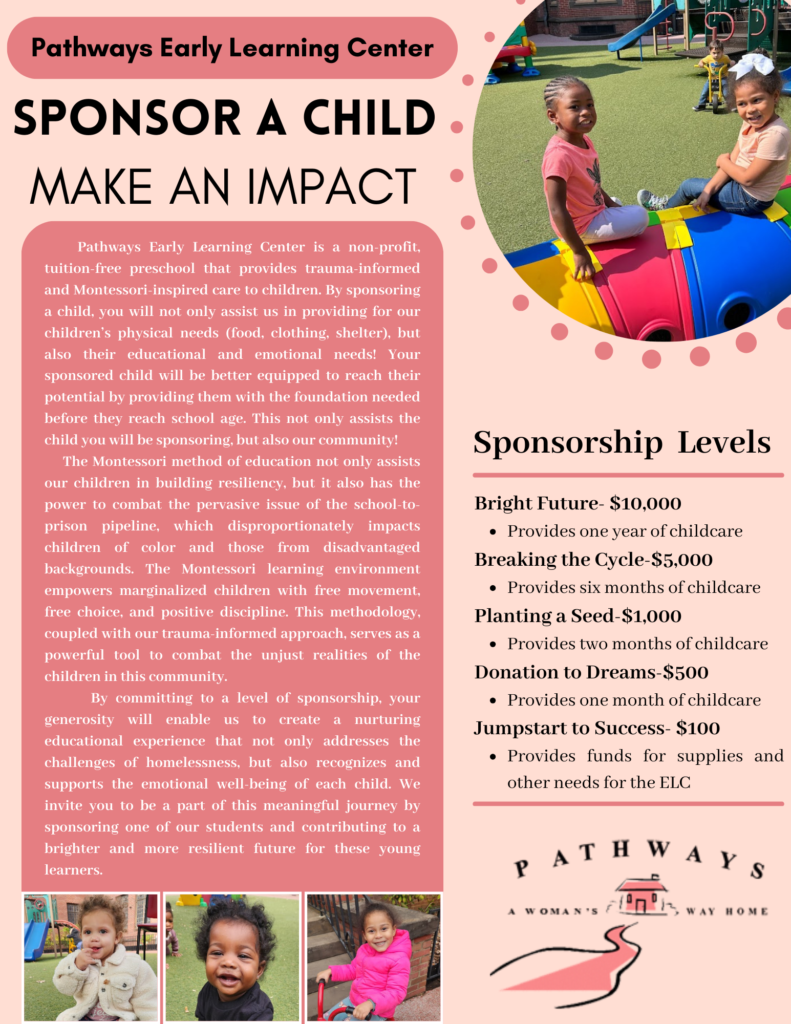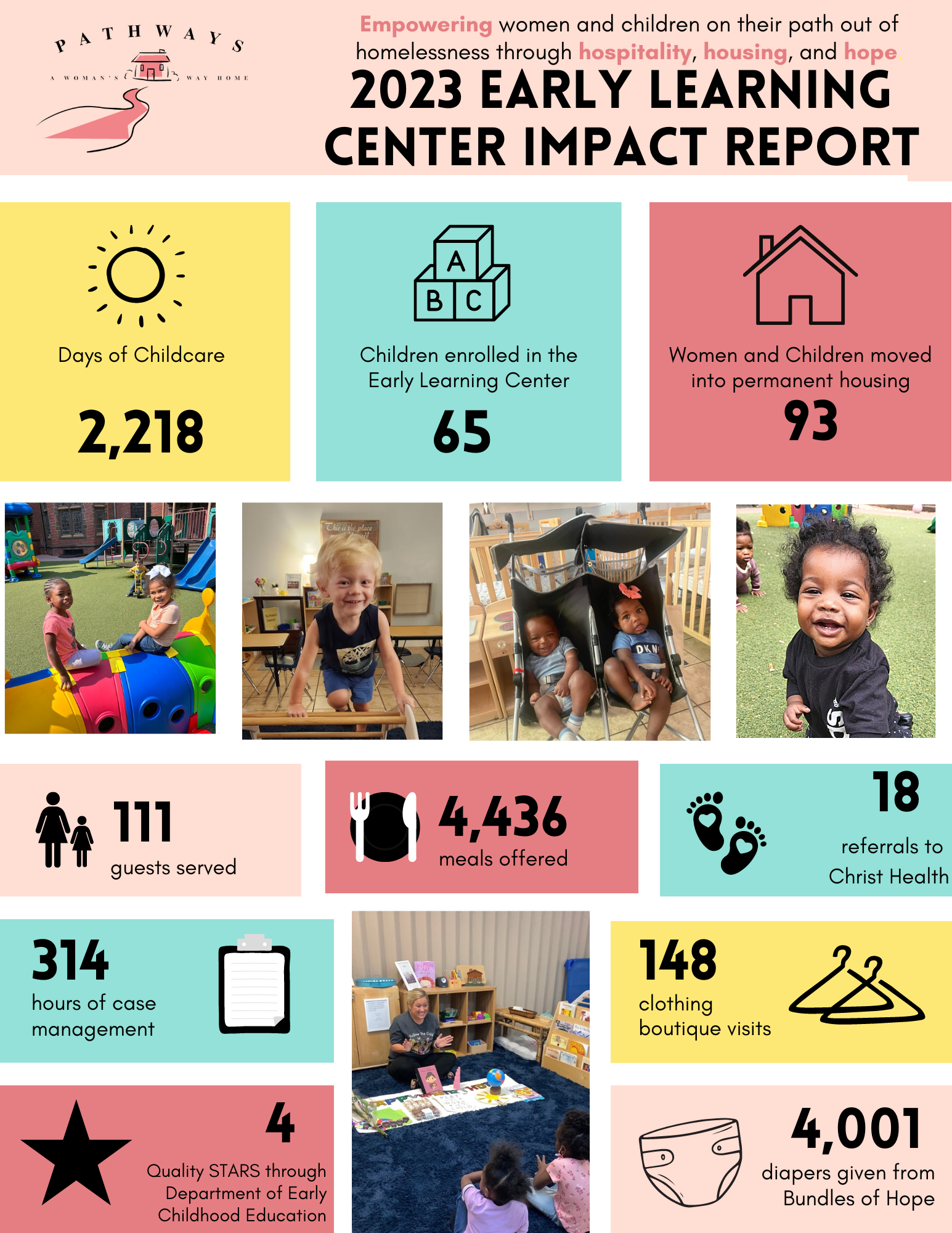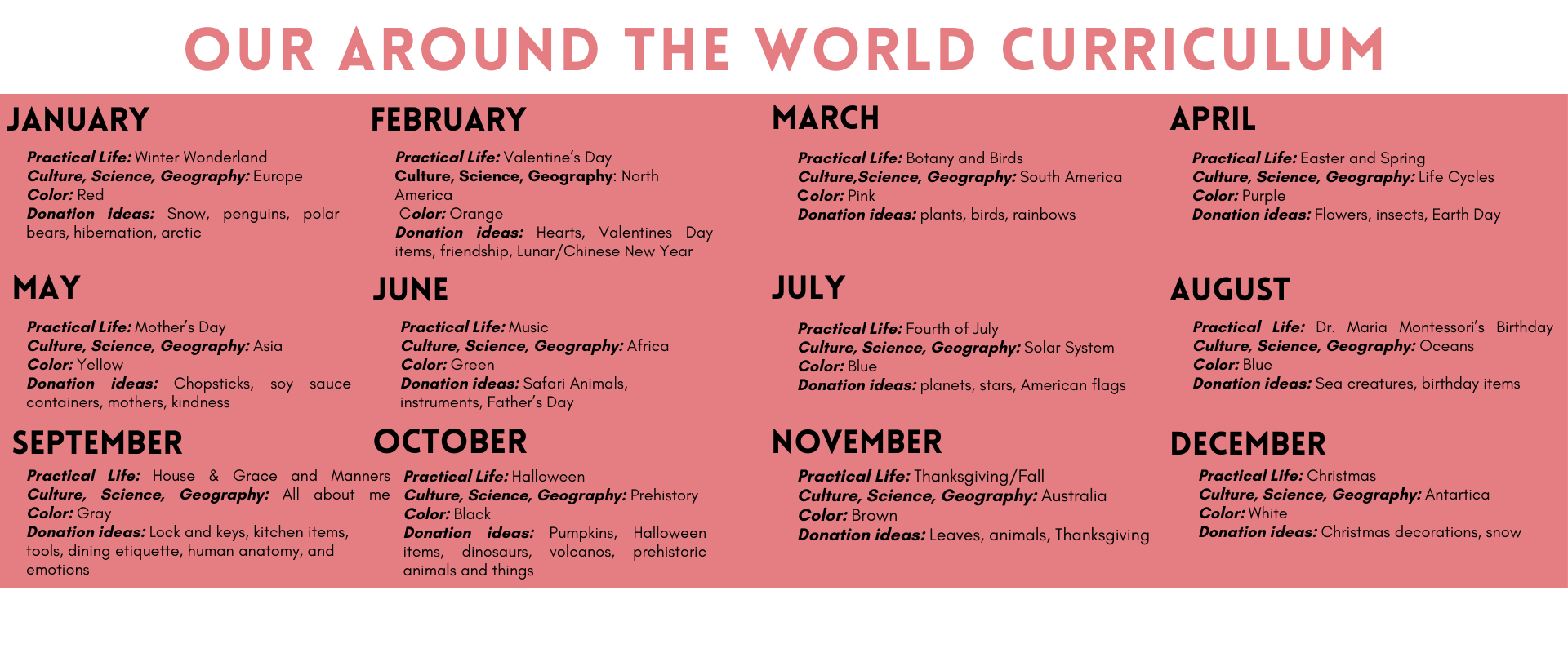

The Montessori method of education was designed to meet the needs of children exactly like those we are serving at Pathways, but it has become privatized and inaccessible to the very children who need and deserve it most. I truly believe that we are changing the face of Montessori at Pathways by offering it to children who are experiencing homelessness. The time is now to tear down the gates of privilege that surround the Montessori method of education and make it accessible to all.
WHY MONTESSORI?
Here at Pathways, we believe that the Montessori method of education is particularly well-suited for children who are experiencing homelessness. The Practical Life curriculum within the Montessori curriculum plays a pivotal role in empowering our students. By emphasizing daily life activities, practical skills, and independence, this curriculum equips them with essential life skills, fostering resilience and adaptability. By engaging in the exercises of Practical Life like food preparation and activities that teach personal hygiene and cleanliness, our students gain the necessary tools to navigate their daily lives with confidence and self-sufficiency, while also developing problem-solving skills and resilience to overcome the challenges they may face. Perhaps most importantly, the curriculum’s focus on order and routine offers our students stability and security amidst their uncertain living situations.
RETURNING TO THE ROOTS OF MONTESSORI
At the Pathways Early Learning Center, we aspire to return to the roots of the Montessori method and make it accessible to all. Dr. Maria Montessori’s transformative journey began in the early 20th century in the slums of Italy, where she developed her methodology to empower children facing circumstances much like those of the children we are serving in our preschool. Recognizing the potential within each child, regardless of their background, Dr. Montessori’s method has historically been a beacon of hope for the underserved. Unfortunately, an authentic Montessori education has become inaccessible to the majority of the Western world and is now priced out of reach of even the most middle class families. Our preschool is dedicated to breaking down these barriers and ensuring that children experiencing homelessness benefit from the empowering principles that Dr. Montessori envisioned.
TRAUMA-INFORMED CARE
Our trauma-informed practices ensure that the unique needs and experiences of each child are recognized and addressed with sensitivity and care. When creating the optimal learning environment for children who are experiencing homelessness, it is crucial to consider the impact of early childhood education on Adverse Childhood Experiences (ACEs). Research indicates that a trauma-informed early childhood classroom can play a vital role in mitigating the effects of ACEs. Pathways Early Learning Center is committed to providing a trauma-informed learning environment, understanding that many of the children we serve may have experienced adversity. In addition to this, we must acknowledge that children who are experiencing homelessness may feel isolated or disconnected from their peers due to their circumstances. By providing opportunities for collaboration, cooperation, and social interaction, a trauma-informed Montessori learning environment offers our students a sense of belonging and community.


